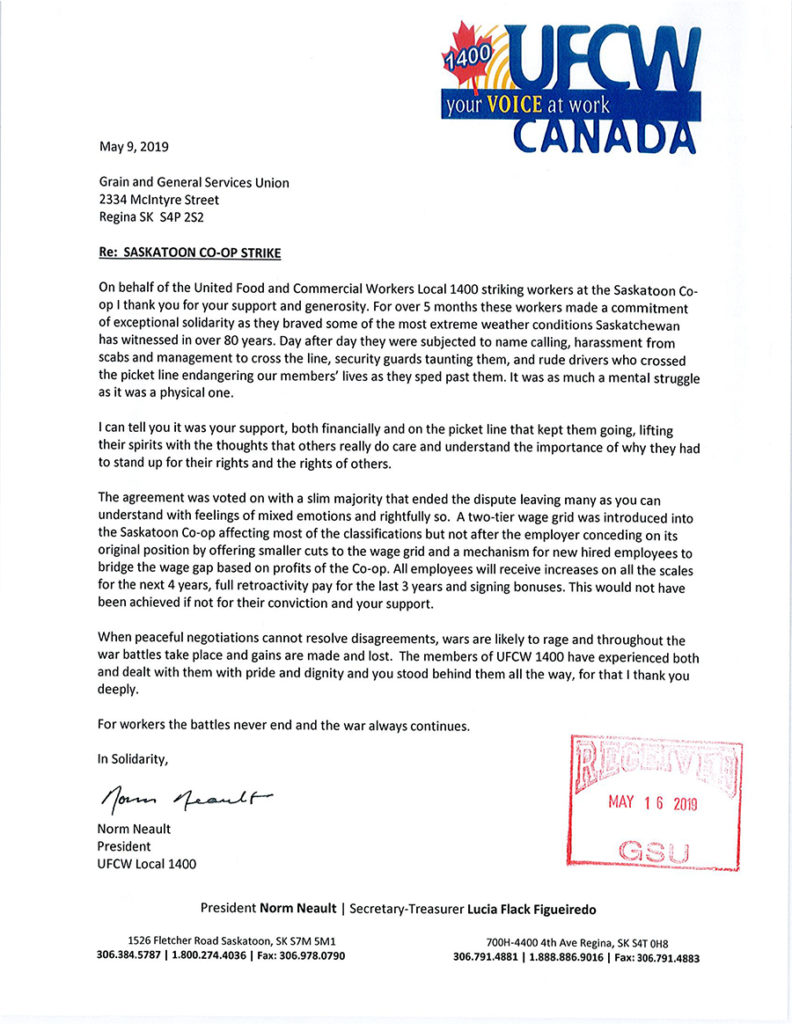All of the membership meetings have been completed and the ballots cast to date by GSU Local 1 and 2 members on Viterra’s April 2, 2019 final offer have been tallied. The results of the voting are as follows.
Local 1:
59.53 percent of members who cast ballots voted to accept Viterra’s final offer. 40.47 percent voted to reject the final offer.
Local 2:
61.54 percent of member who cast ballots voted to accept Viterra’s final offer. 38.46 percent voted to reject the final offer.
The results of the vote are preliminary for GSU Local 1 since there might be one or two absentee ballots in the mail. Nonetheless, any outstanding absentee ballots will not affect the final outcome and the union bargaining committee will proceed to finalize a new operations/maintenance collective agreement based on Viterra’s April 2, 2019 final offer.
The results of the vote are final for GSU Local 2 and the union bargaining committee will proceed to finalize a new Regina office collective agreement based on Viterra’s April 2, 2019 final offer.
“Whether members voted in favour or against the final offer they engaged in workplace democracy that is unique to union representation,” said GSU president Jim Brown. “There were a significant number of votes to reject the final offer and that reflects the dissatisfaction members have with the Viterra’s pay system.”
“Even though the new collective agreements will be based on the final offer, GSU’s leadership team will continue to advocate and press for reform of the pay system,” said GSU general secretary Hugh Wagner. “Thank you to everyone who participated in the vote.”
Questions? Comments? Contact your GSU bargaining committee representatives.


